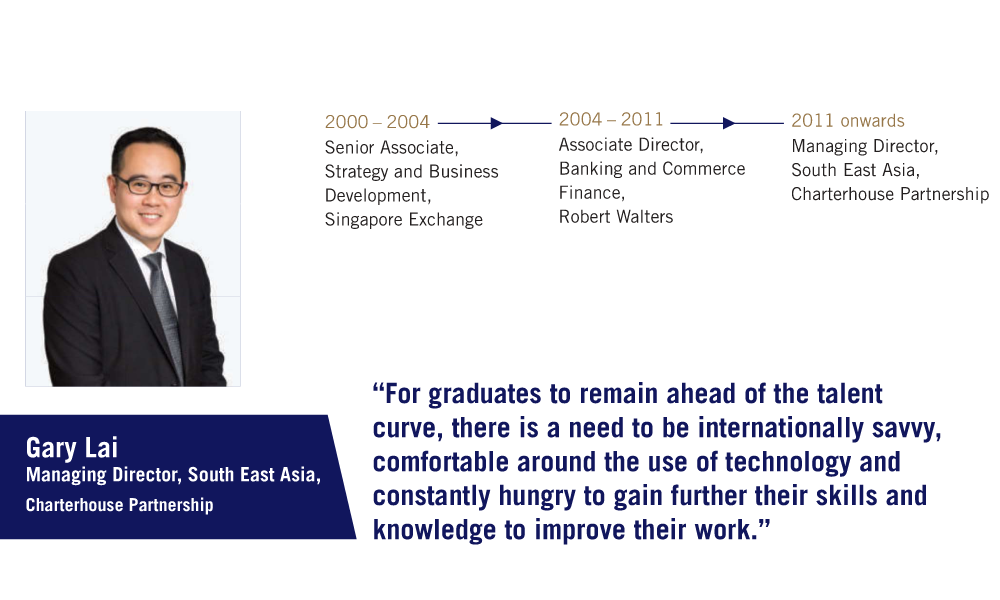Challenges of the present and future
Singapore has traditionally been the regional headquarters for many foreign companies wishing to catapult into South East Asia or the wider Asia Pacific region. Due to a well-developed capital market, excellent infrastructure, political stability and where the rule of law is strongly adhered to, I expect this trend to grow even further. This is fuelled by the boom of Fintech companies looking for a base in the region and Singapore is often amongst their top location options.
To continue promoting Singapore as an international business hub, our local graduates must prepare themselves to compete with the best global talent who are looking to be based in Singapore. These international firms want the best talent.
In parallel, many PMET roles in Singapore will have regional functions and our local graduates must be prepared that a bigger role would often entail taking on larger geographical responsibilities, and having to make social sacrifices.
The competition for the global best talent in Singapore is real. Only if companies, which have their regional headquarters in Singapore, are able to attract such talent, will they likely continue to invest further in their operations locally.
The same applies to our local companies as they look to move out from a limited domestic market. Companies rely on a vibrant and now flexible pool of talent to complement their regional growth ambitions and our graduates must be prepared to compete in an international arena.
Staying resilient and relevant
For graduates to remain ahead of the talent curve, there is a need to be internationally savvy, comfortable around the use of technology and constantly hungry to gain further their skills and knowledge to improve their work.
Communicate more with your managers and peers. Often, you will professionally grow faster by interacting with other seasoned colleagues.
The global coronavirus pandemic has transformed how many companies now operate, from how staff communicate and work internally, and also externally in conducting business with clients.
As more companies adopt flexible work arrangements – which may become an employee benefit for progressive companies – graduates must continue to remain self-driven, self-learned and self-responsible as their role becomes more autonomous.
Advice to graduates
Graduates embarking on their career journey must first understand what types of jobs would suit their individual strengths, weaknesses and personality.
Most jobs can be categorised into various forms within operational, analytical and/or relationship management. Do your research into what the job entails and establish if it is aligned to your longer term career goals and personal interests.
Go into a role with an open mind and understand that every job has its ups and downs. As a graduate, take the opportunity to learn from your more experienced colleagues, and be proactive and versatile in taking on bigger tasks.
Besides a can-do attitude and a positive mindset, doing your homework in finding a job which matches your personality will go a long way into building a sustainable career.
I firmly believe that if you find a job you are passionate about, the job will become a career where you will never need to work another day.




.png)



